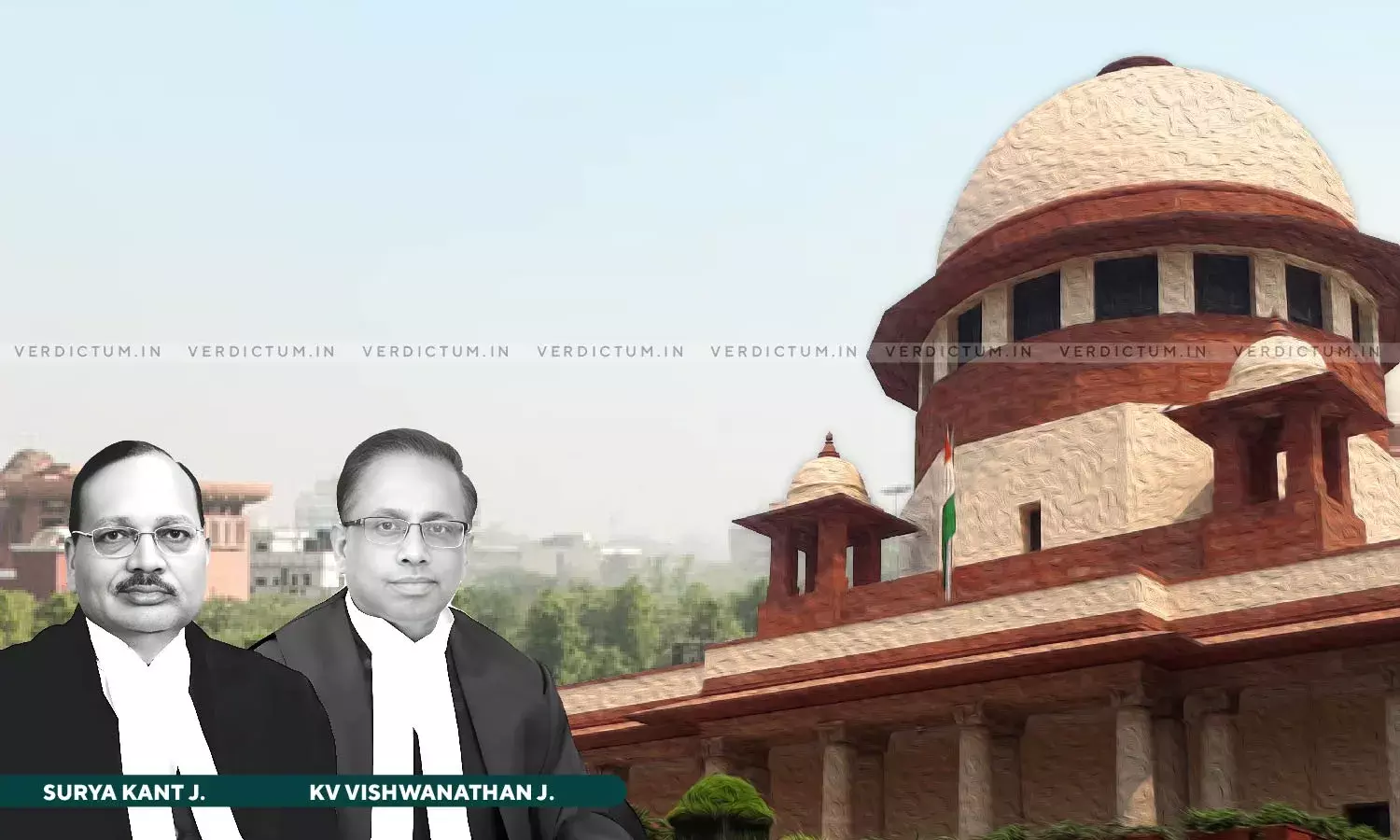Voice Of Victim Must Be Dispassionately Heard: SC Orders Further Investigation By SIT In Cheating & Rape Case Against Police Officer

The Supreme Court recently directed to constitute a Special Investigation Team (SIT) to carry out further investigation in a cheating and rape case against a police officer.
The bench said that it was a fit case where the Judicial Magistrate should have invoked his power under Section 173(8) of CrPC to direct the Investigating Officer to further investigate the serious allegations in the matter. Further that the denial of investigation into the matter has thus led to gross injustice to the appellant.
Additionally, the bench also took note of the fact the accused in the present matter was a Police Officer and consequentially, allegations of undue influence and/or unintended favour towards him by the Investigating Officer could not be brushed aside lightly.
A bench of Justice Surya Kant and Justice K.V. Vishwanathan observed, “We fail to understand what prevented the Magistrate from treating that application purportedly filed under Section 173(8) of CrPC as a Protest Petition and then decide the same on merits. A technicality like the caption of the application/petition could not be an impediment to consider the substance thereof and then determine whether or not the matter required further investigation so as to find out the prima facie element of offences under Sections 376, 417 and 420 of the IPC. Such a permissible procedural recourse has been unfortunately overlooked by the High Court as well”.
Further, while directing the Investigating Agency to hold further investigation to find out whether or not offences under Sections 376, 417 and 420 of IPC are made out against respondent no.2, the bench noted, “Owing to the status of the accused, the State of Pondicherry is directed to constitute a Special Investigation Team to be headed by a directly recruited woman IPS Officer along with two officers in the rank of DYSP and Inspector of Police. If a woman IPS Officer is not available in the State cadre, then any one of the officers in the rank of DYSP or Inspector must necessarily be a woman. The further investigation shall be completed by SIT within three months”.
AOR Anish R. Shah appeared for the petitioner and AOR Aravindh S appeared for the respondents.
In the present matter, the appellant was had moved an the application seeking further investigation under Section 173(8) of the Code of Criminal Procedure, 1973 on the ground that a part of the vital material to substantiate the allegations of commission of offences under Sections 376, 417 and 420 of the Indian Penal Code, 1860 was not collected by the Investigating Agency. The same application was turned down by the Trial Magistrate and that order was affirmed by the High Court through the impugned order.
Allegations in the case were that the respondent no. 2 allegedly got married to the appellant and that both were living together. It was further alleged that she got an abortion done twice. However, later the appellant got to know about the accused’s second existing marriage.
The appellant thus in her application had averred that,
(i) respondent no.2 was already married to Ms. X, and was, thus, disqualified to perform the second marriage; (ii) he being a government officer, his second marriage during the subsistence of the first marriage would have been a misconduct under the Conduct Rules; and (iii) that the first chargesheet itself suggested that the appellant and respondent no.2 had been living together and were in physical relationship.
The bench though acknowledged the fact that the prescribed and appropriate recourse for the appellant would have been to submit a Protest Petition against the chargesheet filed by the Investigating Officer, in which the second respondent was not put up for trial for offences under Sections 376, 417 and 420 of IPC. The appellant, instead, moved an application captioned as “under Section 173(8) of Cr.P.C.”
“The averments made in that application reveal that the appellant protested against deletion of charges under Sections 376, 417 and 420 of IPC and she made an endeavour to bring on record the material which would prima facie establish the commission of these offences”, the bench noted.
Accordingly, without going into the merits of the matter, the bench further observed, “We may hasten to add here that the accused is a police officer. The allegation of undue influence and/or unintended favour towards him by the Investigating Officer cannot be brushed aside lightly. It is the bounden duty of every Court of law that injustice wherever visible must be hammered and the voice of a victim of the crime is dispassionately heard…If that is so, the Investigating Agency ought to have further probed as to whether they have been cohabitating pursuant to the so-called marriage performed on 13.09.2012 and/or it was merely a consensual live-in relationship. Similarly, the Investigating Officer does not appear to have taken any pains to visit the hospital/medical clinics to verify whether the appellant underwent abortion twice. We are not sure whether the statements of the persons living in the neighbourhood were recorded or not to find out whether the appellant and respondent no.2 had been living together…as husband and wife. All these facts will have a material bearing on the determination by the Trial Court as to whether a prima facie case under Sections 376, 417 and 420 of IPC is made out or not”.
Appearance:
Petitioner: AOR Anish R. Shah
Respondent: AOR Aravindh S., Advocate Abbas
Cause Title: XXX v The State Represented Thr. The Inspector Of Police & Anr.
Click here to read/download the Order

